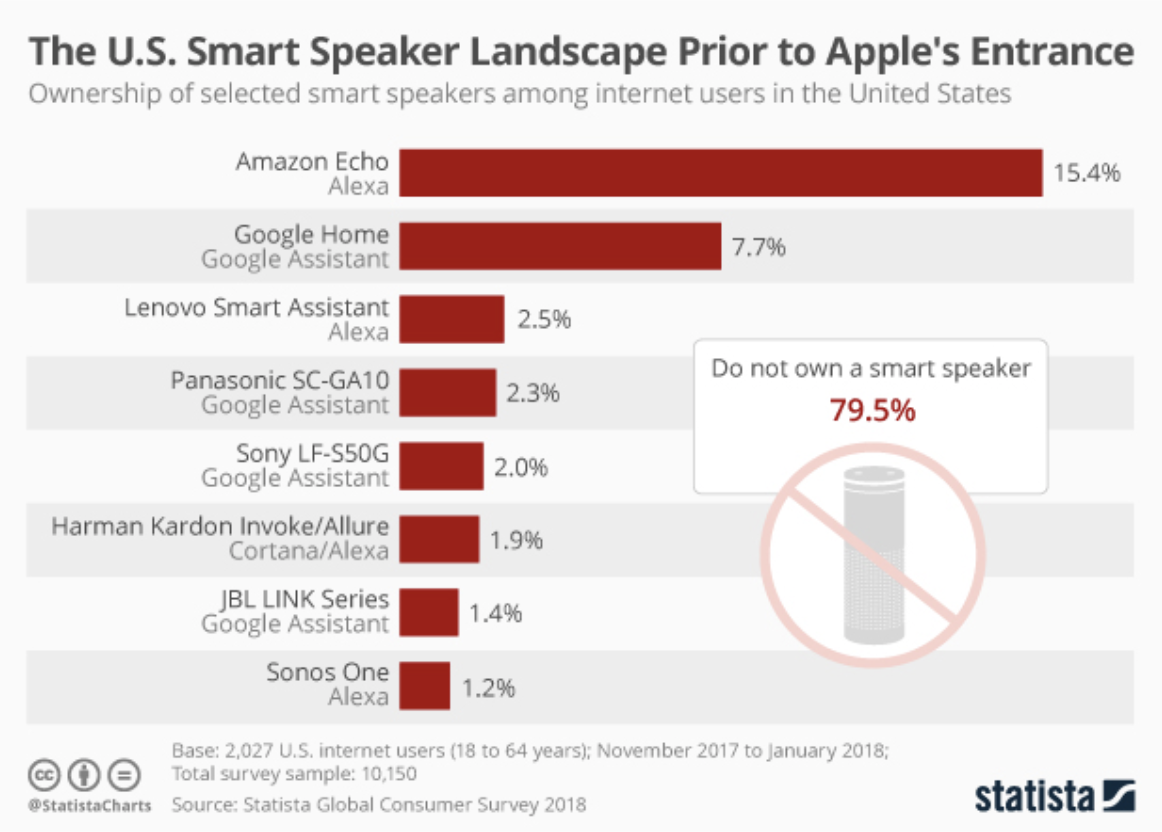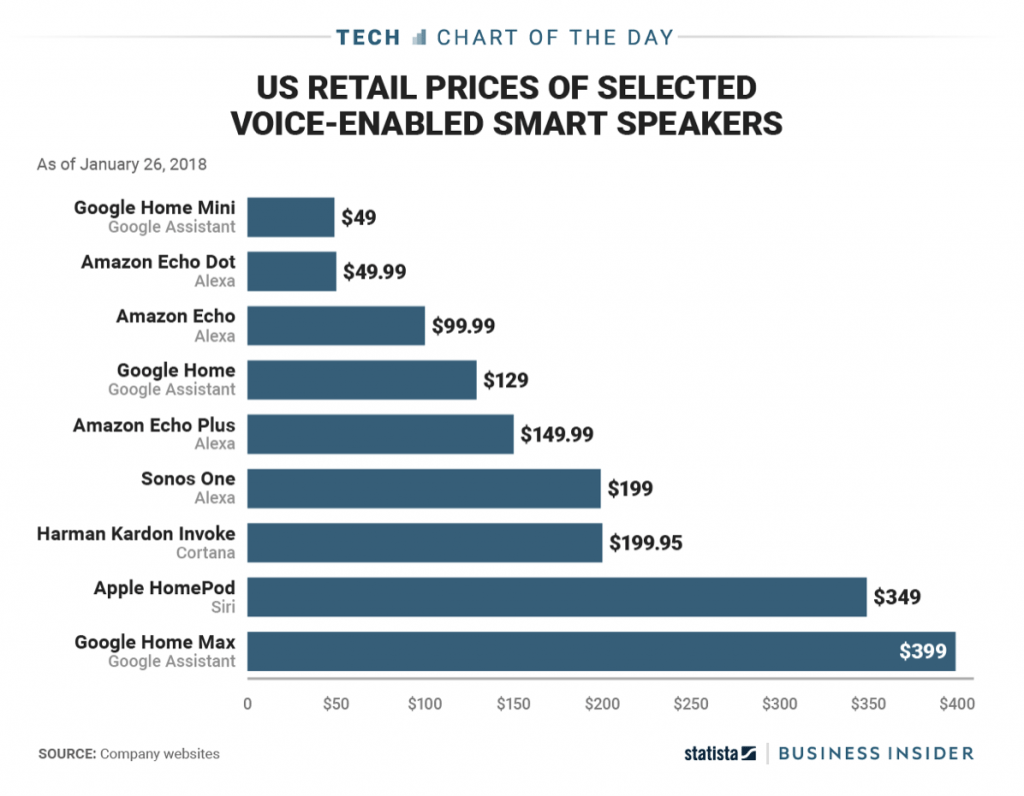One of the most important markets for the tech industry is the connected home. Connected thermostats, televisions, lights, appliances, security cameras, door locks, etc. have gained strong consumer interest around the world and is at the heart of making homes and even offices smarter.
I have been studying the connected home since 2002 and wrote one of the first reports on this idea in 2004 about having a home with devices connected to the Internet. In that report, I stated that while I saw the potential of connected devices, I believed that they would only gain real traction when they had more processing power behind them, better connectivity, and were controlled centrally.
In 2004, we did not have smartphones, smart speakers or even any standardized wireless protocols that could deliver on the concept of the smart home but I proposed that once they did have this capability, it would need some hub that served as a control center. The device I suggested that could serve as this hub should be the television. We were working with a semiconductor company who specialized in television processors at the time and had a vision for making the TV more intelligent. As I looked at their processor roadmap I could see a glimpse of where they could go with these chips to deliver a TV that could be connected to the Internet and putting two and two together, I surmised that a TV, with the right intelligence and connectivity, just might be able to serve as control hub of a connected home.
Fast forward to today and TV’s indeed have become smarter with greater levels of connectivity. While they are placed in most homes in a central location that could serve as a smart hub, none of the TV vendors have designed them to be connected smart home control centers. Interestingly, I believe that this was the thinking behind Steve’s Job’s desire to create a TV. While Jobs told his biographer Walter Isaacson that his vision for the TV was focused on user interfaces and ease of use, I believe his vision was more Trojan Horse in that it could also become a smart hub for a connected home. Now, this is pure conjecture on my part, but I’ve spent enough time following Steve Jobs and tracking his motives and could easily see that he had more in mind than just a better UI for a TV.
The idea of a hub that sits at the center of controlling a smart home is more relevant today than ever. While I thought that a TV was the most logical device to serve as that hub, it is clear now that a smart speaker has become the right device that can serve that purpose now. With a voice interface, connectivity and placed at the center of a home’s activity, such as a kitchen or a den, it is quickly becoming the best way to interact with, and control, the multitude of smart devices people are employing in their homes these days.
But let’s be clear, we are still at the early stages of making homes smart and the very early stages of making smart speakers in one form or another the primary hub that controls the smart home.
The chart below puts this fact into perspective.
As stated above, this chart only shows the market before Apple entered the smart speaker market. It also shows that there is a lot of room to grow this market in the US.
The chart below shows the pricing of these speakers and shows Apple has some real headwinds when it comes to the Homepod’s ability to gain market share in the smart speaker market. However, If Apple can sell a projected 5-6 million in calendar 2018, they could end the year making the most money and profit in this market segment.
As I have mentioned above, the real purpose of smart speakers, besides giving us information on demand, is really to serve as the control center of a smart home and this will become much more important as a plethora of smart devices flood homes around the world in the next few years.
In my home I have been using Amazon’s Echo and Echo Dots, the Google Mini and Apple’s New Homepod for getting information, playing music on demand, ordering stuff online and controlling lights and other connected devices around the house. By far the best device I have is Apple’s Homepod since it provides superior sound quality compared to the others I use and I have found Siri to be surprisingly quite accurate since I started using it a few weeks back. And as a hub, it works flawlessly with the made for Apple Home devices too. But so has the Echo and Mini when it comes to controlling connected devices in their respective eco-systems.
Given what I believe was Steve Jobs’ Trojan Horse thinking about the TV as a control hub and my belief that Apple has made the Homepod an extension of Jobs’ TV vision, I think Apple also needs to follow what Amazon and Google have done and created mini versions of their larger speaker models. The fact is that a hub of this type needs to reside in other places of the home, not just one central location like the kitchen or the den. In my home, the larger speakers are in the Kitchen, but I have the Google Mini’s and Echo Dot’s in our bedroom, my study, and even our master bathroom.
For Apple to make the Homepod a whole home hub they eventually need to do what I would call a Mini-Homepod, but with better quality speakers that are in the Echo Dot and the Google Mini. While the Google Mini and Echo Dot are $49.99, I would be willing to pay $99 for a Homepod mini if the speaker quality was at least four times better than what is on the Mini and Dot today.
I believe the battle to control the smart home will go through the smart speaker since it will serve as the central control system of the connected home. In that sense, it also becomes a real eco-system battle. But it starts with the quality and functionality of the smart speaker and the accuracy of its intelligence and controlling functions. The smart speaker is much more than an intelligent speaker. It is on track to become the central controller of the smart home and serve a much greater purpose than just being a speaker and smart agent.



Thank you for great content. I look forward to the continuation.